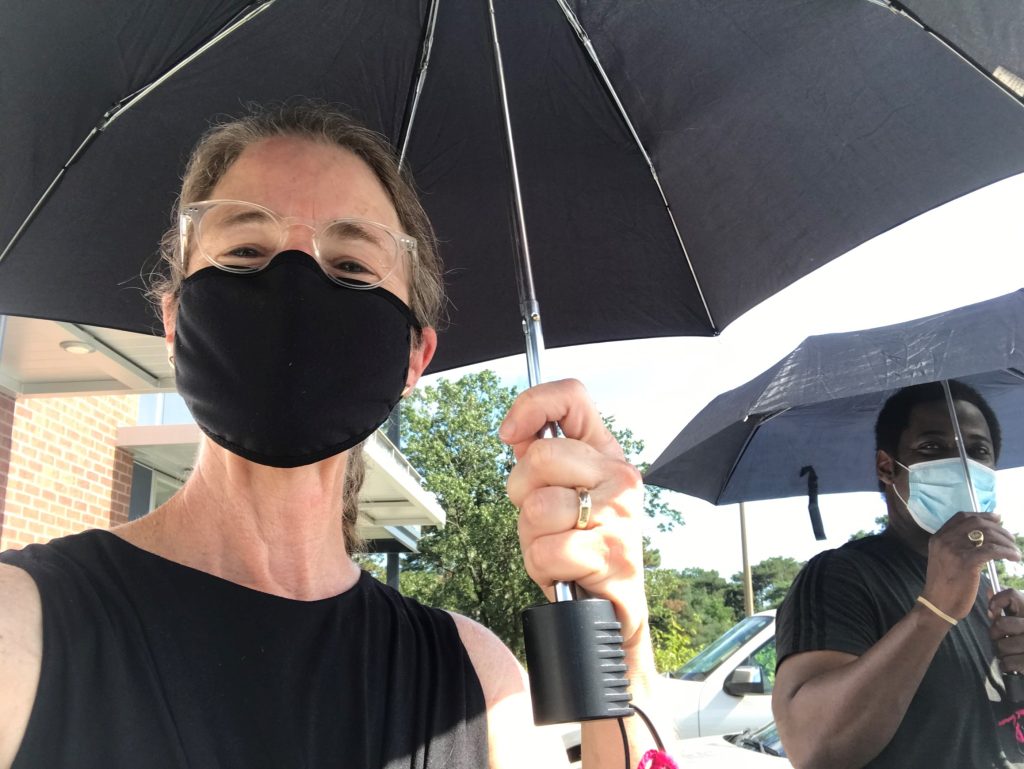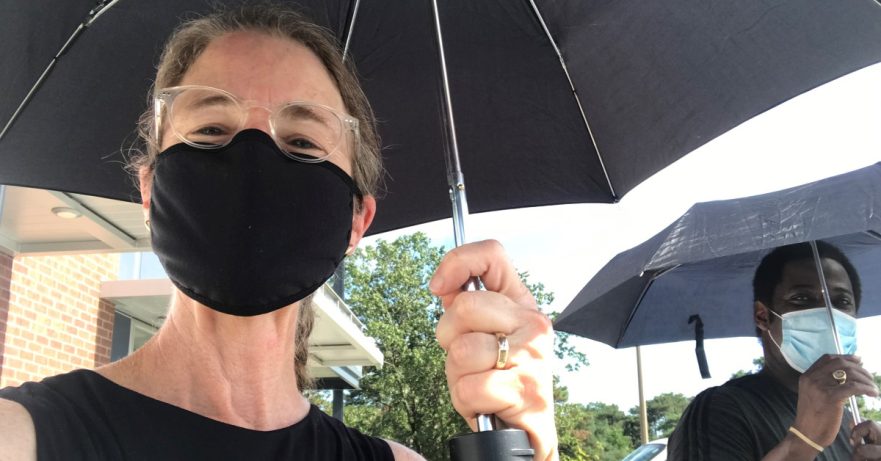
Faith Sandler and Thurman Young arranged for students to pick up their grant and loan checks curbside in 2020. No one could have then predicted the years of effects of pandemic on the students of The Scholarship Foundation of St. Louis.
By way of this post, I am inviting you to join our board and staff in reflection.
Following are four short profiles, drawn from the true stories and actual facts of individuals now funded by programs of The Scholarship Foundation of St. Louis. The names are fiction and the details adjusted for anonymity but the stories are truth.
As you read these, I suggest you practice “radical listening” (to understand, not to debate or respond). At the close, pause on the reflection and answer for yourself, your own experience. Then skim back through these profiles and identify what you can learn that is new, nuanced, or wholly different from your own experience.
Amber
For Amber, college was the “only path I ever saw as stable and safe.” She grew up in Jefferson County where she learned from her parents, albeit indirectly (one suffered cancer and mental illness and the other addiction) how to be self-reliant. Amber and her younger brother lived their teen years with their grandfather, who did all he could to support them until he became ill and lost his job during Amber’s senior year in high school. Amber is determined. Throughout high school, she volunteered to cook meals at homeless shelters. Though she entered college feeling safe, she contracted COVID in 2020 and was very sick for several months. Half her college years were amidst a pandemic. During her final year, she was enrolled full-time and worked full time at a 24-hour emergency center for families in crisis. Amber graduated one year ago but has not finished. She plans a master’s in public policy or law and a career in child advocacy.
James
James graduated from a north county public high school where he learned English as his second language. He also worked 20-30 hours weekly at a car wash in his teen years. He is the oldest of four siblings and admires his parents as very hardworking, explaining his mother did not have a chance to finish high school. James made his parents proud with his 3.4 GPA, four years of soccer, and leadership in speech and debate. He was accepted to the school of engineering at University of Missouri-Rolla in 2015 but soon after learned he would be charged triple the in-state tuition rate, a setback that seemed almost insurmountable until a Scholarship Foundation advisor and Southern Illinois University–Edwardsville intervened. James enrolled in SIU-E’s school of engineering. He did well in school and was selected for a paid one-year project management co-op in mechanical engineering for a major utility. Five years and two corporate internships after he was nearly turned away from college, he graduated with a degree in mechanical engineering. Upon graduation, James became Tech Services Manager with an international corporation headquartered in St. Louis.
Nina
Nina quite literally has no time for anyone’s pity. Her story begins but does not end when her father went to jail in 2011. She writes, “I was 9 years old and in the 6th grade. I had to become an adult while I was still a child.” Nina graduated from a small public high school in an inner-ring suburb, working 2-3 part-time jobs to supplement the $20,000 her mother made annually. She was cheerleader, soccer player, student government representative, and primary caretaker of her younger siblings. Her pace and rate of accomplishment only increased in college, including three paid internships, multiple part-time jobs on-campus and off, a cumulative GPA of 3.66, and leadership roles in student organizations. She does not shy away from describing the mental health and wellbeing “tax” she has paid for the privilege of attending college. Nina graduates this spring with a full-time job commitment from a major regional employer and hopes for a moment to slow down just a little.
Rose
Rose commuted to high school in St. Louis on Metrolink from St. Clair County, Illinois. Her parents divorced when she was in high school and neither had steady employment. Rose never knew a period of economic stability. In her 2013 application, she told this story to illustrate how she coped with not having enough.
When I first took the ACT I wasn’t familiar with the system so I didn’t know what my scores meant. In talking to my friends, I found their scores were almost all higher than mine. This confused me; I had always received good grades in school and taken challenging courses, so why was this test saying that I was inferior? I asked my parents if I could get some kind of tutor so I could improve my score. Unfortunately, we did not have the money to pay for that and I was left to teach myself how to score better on a standardized test. I got a giant book of practice tests and started reading all the tips for how to decrease the time you spend or how to eliminate wrong answers. I tried again a few months later. My score improved, but for me it still wasn’t good enough. I continued to practice and found a free program online to help me focus on the areas where I needed most improvement. Eventually, on my third try, I got the score I thought I needed. After months of studying and questioning my own aptitude, I realized that this test did not speak for me as an individual. It did not reflect how intelligent I was or how successful I would be in the future.
Generous Illinois need-based state aid and that third-try ACT score meant that Rose was able to enroll in a selective private college. She graduated on time and in significant federal and Scholarship Foundation debt, which she is still in the process of repaying.
****
What did you hear that sounded familiar, or resonated with your own experience?
What did you learn that is new, nuanced, or wholly different from your own experience?
What inequities are at work here?
What more did you find yourself wondering as you read?


